Apple introduces two new powerful chips including the M1 Max with 57 billion transistors
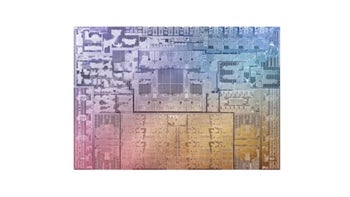
Apple took the M1 chip it designed and released last year to replace Intel's processors and shot it up with steroids to create two new powerful chips. The M1 Pro and the M1 Max are both built using TSMC's 5nm process node. The M1 Pro sports a transistor count of 33.7 billion transistors, more than twice the 16 billion found inside the M1.
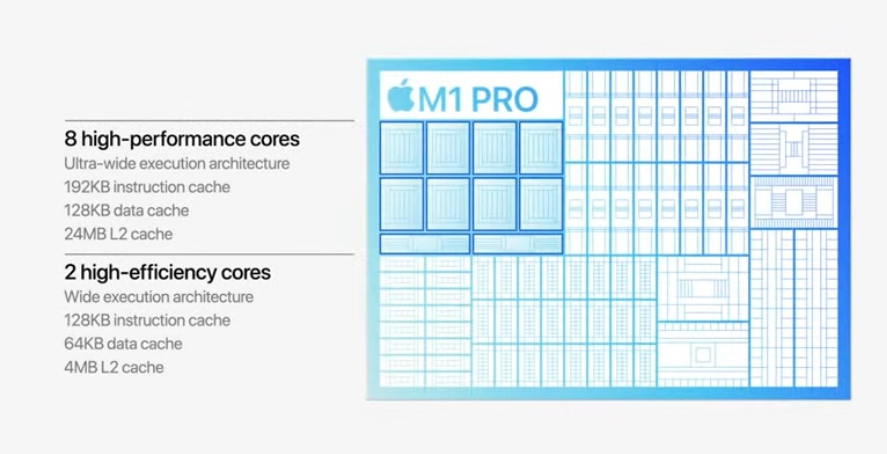
The M1 Pro will contain 33.7 billion transistors and a 10 core CPU
The M1 Pro offers a 70% hike in CPU performance and two times the graphics performance delivered by the M1. The component will be equipped with ten cores and eight of them will be high-performance cores and two efficiency cores. The GPU features 16 cores, twice the number found in the M1. The M1 Pro delivers twice the graphics performance as the M1 and 7 times the graphics performance found in today's PC laptop chips.
Apple's new M1 Pro and M1 Max contain 33.7 billion and 57 billion transistors respectively
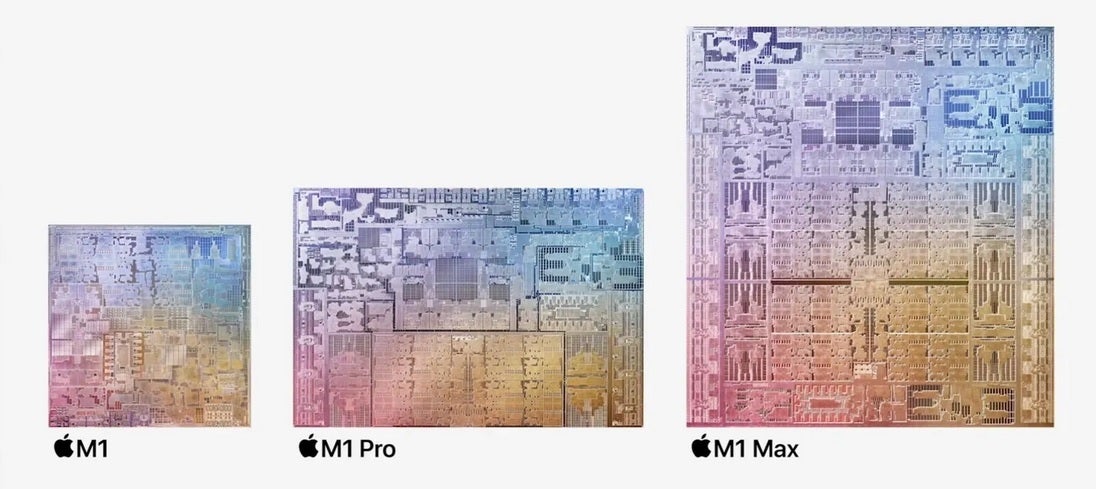
Apple has added two new M1 variants to its high-performance M-series chips
Apple also unveiled the M1 Max with a whopping 57 billion transistors (3.5 times the M1 and 1.7 times the number of transistors in the M1 Pro) making it the biggest and most powerful chip to be designed by the tech giant. While the M1 Max has the same 10 core setup as the M1 Pro (with eight high-performance cores), the former supports twice the memory bandwidth as the M1 Pro (400GB/sec), twice the RAM (up to 64GB) and the GPU carries 32 cores offering four times the GPU performance found on the M1.
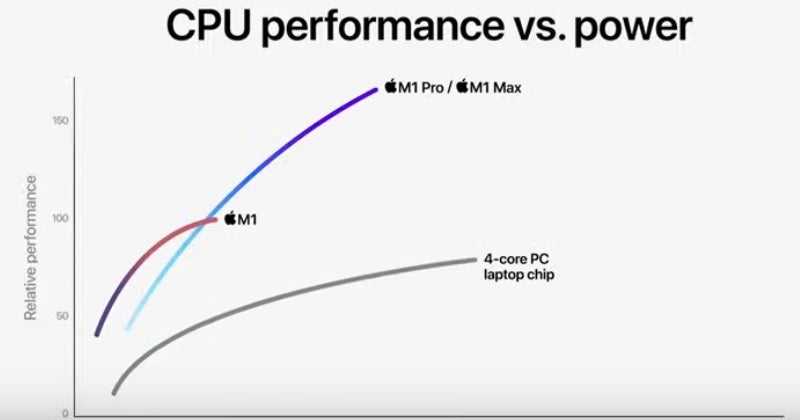
The M1 Max is also energy-efficient as it offers the industry's best performance per watt
Apple says that the M1 Max delivers 1.7 times the CPU performance of today's PC laptop chips while using 70% less power. And compared to the most powerful PC laptop chips used today, the M1 Max matches the graphics performance using 40% less power. Compared to the most powerful PC laptop it could find, the M1 Max delivers comparable performance using 100W less power.
Both the M1 Pro and M1 Max feature a 16 core Neural Engine for on-device machine learning. The Neural Engine on the M1 Max can handle as many as 11 trillion operations per second. A new display engine can support multiple screens.
In its press release, the company notes that "Apple’s custom image signal processor, along with the Neural Engine, uses computational video to enhance image quality for sharper video and more natural-looking skin tones on the built-in camera.
While Apple did equip the latest iPad Pro models with the M1, the chips announced today could be strictly reserved for the Macs.
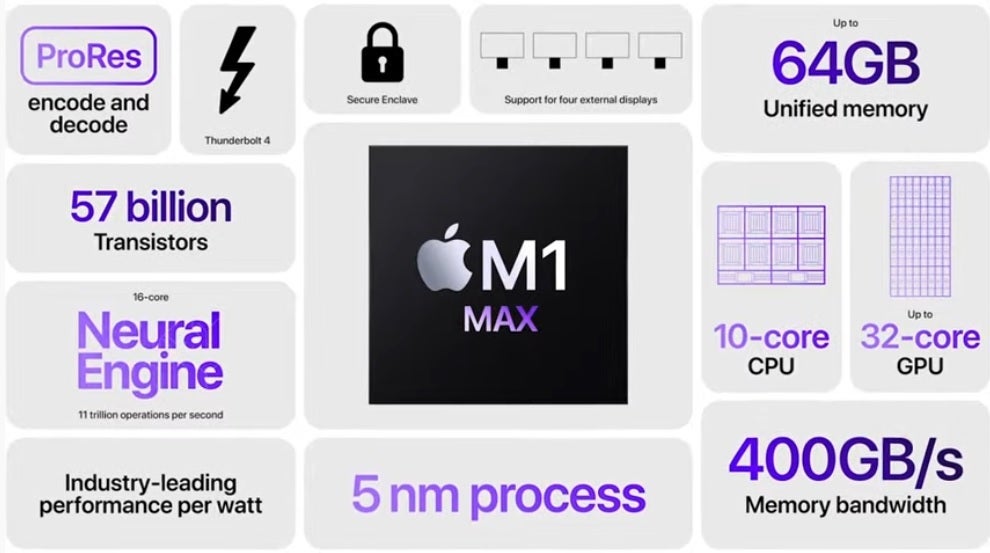
Apple says that the M1 Max contains 57 billion transistors
Johny Srouji, Apple’s senior vice president of Hardware Technologies, said, "M1 has transformed our most popular systems with incredible performance, custom technologies, and industry-leading power efficiency. No one has ever applied a system-on-a-chip design to a pro system until today with M1 Pro and M1 Max. With massive gains in CPU and GPU performance, up to six times the memory bandwidth, a new media engine with ProRes accelerators, and other advanced technologies, M1 Pro and M1 Max take Apple silicon even further, and are unlike anything else in a pro notebook."
How can Apple get away with introducing two new powerful chips in the midst of a global chip shortage?
Apple writes that "The Mac is now one year into its two-year transition to Apple silicon, and M1 Pro and M1 Max represent another huge step forward. These are the most powerful and capable chips Apple has ever created, and together with M1, they form a family of chips that lead the industry in performance, custom technologies, and power efficiency."
If you're wondering how Apple can have two new high-powered chips made in the middle of a global chip shortage, the answer is simple. As TSMC's largest customer, Apple gets cut some slack by the world's largest independent foundry.
Not only does Apple appear to get first crack at materials used in the chip making process that are in short supply, it also gets breaks when it comes to pricing. TSMC's customers are getting hit with a price hike of as much as 20% while Apple is paying only 3% more.













Things that are NOT allowed: